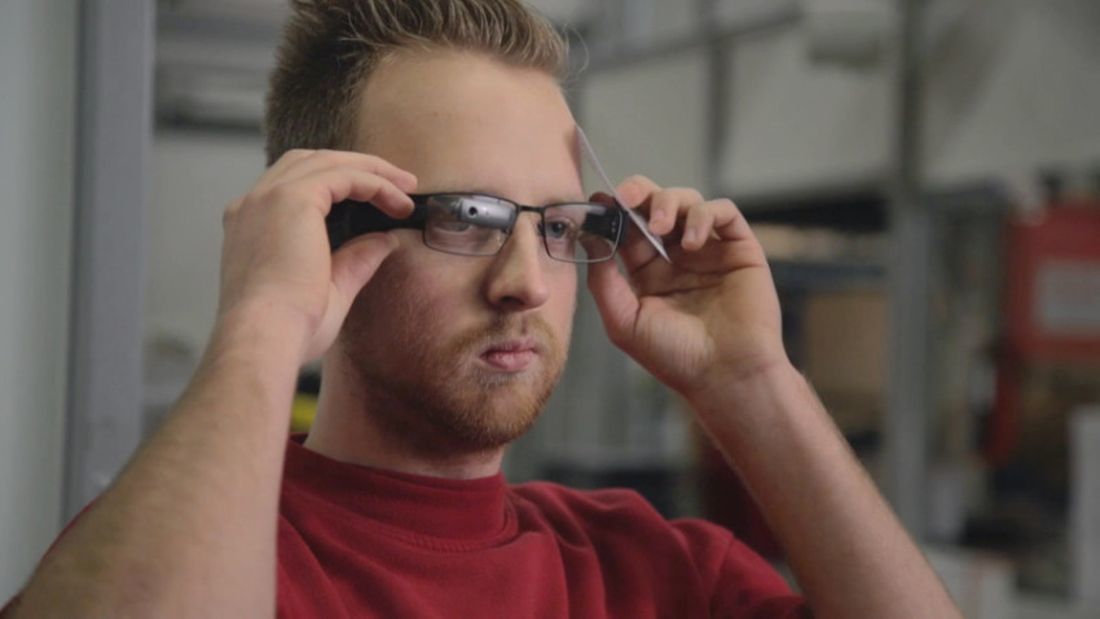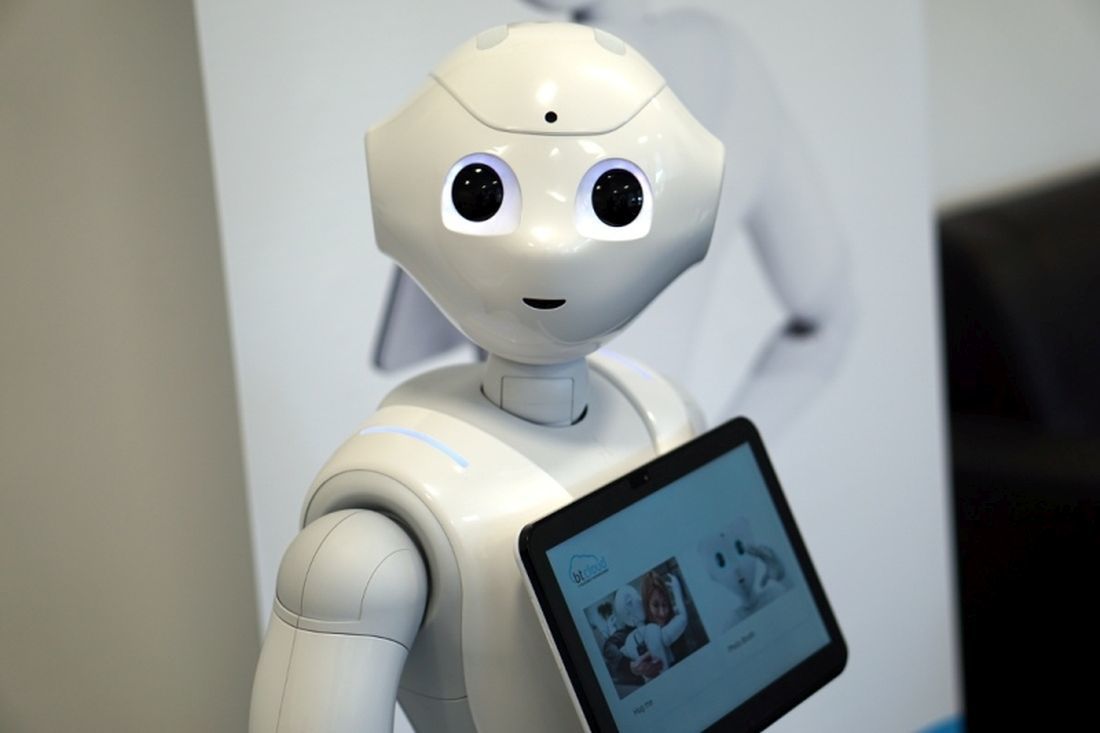Bremen’s artificial intelligence industry at a glance
DigitizationAn increasing number of companies are turning to technologies based on artificial intelligence.

Artificial intelligence (AI) has arrived in Bremen. Several hundred specialists in research and industry are working on this technology of the future. They have now formed a network that represents their interests: BREMEN.AI
AI is regarded as one of the key technologies of the coming years. It will be indispensable in virtually every business, both in industry and in the service sector. A recent study commissioned by the Federal Ministry for Economic Affairs and Energy (BMWi) estimates that up to €30 billion in economic growth will be triggered by AI technologies in the next five years. That is one third of the assumed total value. (Source: PDF of the BMWi study)
Unsurprisingly, the development of AI technology is considered very important across the globe. The German federal government’s AI strategy paper published in November 2018 underlines this by making more than €3 billion available over the coming years.
The establishment of the BREMEN.AI network is a sign of this importance. Around 50 regional companies and scientific institutes of various sizes work either entirely or in part with AI technologies. The network provides opportunities to share information and come up with new ideas, organises meetings and working groups on specialist topics, offers support with projects and works to attract new businesses and skilled workers to the region.
We introduce the key players below:
AI companies in Bremen

Ubimax
The company is the global leader in wearable computing solutions based on augmented reality. Ubimax products are used by industry in logistics and manufacturing, for example, where warehouse and factory workers are equipped with data glasses. The glasses provide employees with relevant information about their work, such as picking orders or assembly instructions.
AI also plays an important role here. “AI is a key component of the Ubimax Frontline platform. Ubimax relies on AI technology for simple voice control, the recognition of objects, images or activities and the real-time transcription of spoken sentences, for example,” says Dr Hendrik Witt, CEO and co-founder of Ubimax. “Our software recognises whether a worker is moving, standing or bending down, for example, and automatically adjusts the user interface. None of this would be possible without the power of AI.”
For Witt, Bremen.AI is a networking platform that allows him to keep up with the latest developments in AI. “We also hope to find new partners for joint projects through the network, which will enable us to form consortia more easily. And last but not least, we want to present ourselves to third parties as an attractive partner and potential employer in order to further strengthen and expand Bremen’s position as a hub in this field.”
JUST ADD AI
Many companies still place artificial intelligence in the realms of fantasy, despite the fact that AI can already achieve faster and better results in many areas than humans can. Bremen-based JUST ADD AI GmbH (JAAI) helps companies to understand and use the latest AI technology. Its clients include various health insurance companies as well as the Werder Bremen football club which uses JAAI’s expertise to increase the success of its talent scouting. The company has developed a scouting tool that uses AI to intelligently search the football club’s huge football prospect database, which has over 100,000 entries, and so helps the scouts with their decisions.
“The importance of AI to science, society and the economy as a whole will grow exponentially over the coming years,” says Roland Becker, CEO of JUST ADD AI GmbH and the initiator of BREMEN.AI. “It is crucial that science and industry in Bremen are effectively linked beyond funded projects and that they jointly drive forward the actual application of artificial intelligence in practice. Bremen is the perfect location for this – not only thanks to the vast amount of AI expertise and the many AI activities in the region but also because of the local industry that is benefiting from this technology.”
hmmh AG
The Bremen-based IT pioneers at hmmh have been working in e-commerce for more than 20 years. The company is as old as the sector itself – it has been involved in every trend and in some cases has played an active role in shaping them. “Automation has increased considerably in the online business in recent years,” says Bastian Diedrich, head of business development at hmmh. “We have started to use artificial intelligence more frequently to complete the next step in the development of connected commerce. AI is becoming increasingly important, as it allows us to make more relevant recommendations for products and services based on user behaviour. Our experts can concentrate more on core processes and work on more important tasks than they were able to ten years ago.”
Diedrich’s team went in search of partners with whom they could jointly explore the possibilities of the new technology. They found what they were looking right here in Bremen – Roland Becker of JUST ADD AI, for example, and leading minds from the German Research Center for Artificial Intelligence. “We should all be pulling in the same direction,” says Diedrich, “because by working together we can achieve more for Bremen. Through the network, we can position Bremen as an outstanding AI hub in Germany that is attractive to both companies and qualified personnel.”

Blackout Technologies
If robots one day try to hook us with their sales patter, show us the way at the airport or become our companions as we go about our day-to-day lives, Blackout Technologies might well have had something to do with it. Blackout is paving the way in social robotics, i.e. robots that interact with humans and help them in the office or in daily life – acting as sales assistants in shops, for example. Thanks to the computing power of cloud networks and the clever algorithms behind the AI databases, the robots from Bremen can process spoken questions, compute their meaning and formulate appropriate responses.
The AI experts have based their business in Bremen’s World Trade Center. They feel at home in the city and are ready to contribute their expertise to the network. “Here we have contact with other start-ups developing really promising technologies, and as we are based at Bremen Airport-City, we are within easy reach of potential clients,” explains founder and COO, Lisa Fischer.
ePhilos
aiPhilos is an intelligent search engine that makes searching within online shops and websites easier. It can be operated by keyboard or voice command and is developed by aiPhilos, a Bremen-based software service provider, in cooperation with the German Research Center for Artificial Intelligence. It brings together the digital trends of AI, cloud services and voice control.
Wearhealth
WearHealth is developing a platform that collects data from wearables, i.e. electronic devices embedded in clothing or worn on the body, and analyses it using artificial intelligence. The aim is to prevent accidents at work, promote health and increase productivity. The company already has 15 employees at three locations.
Airbus
November 2018 saw the launch into space of CIMON, a robot assistant that helps to test robots in space. The device, which is about the size of a football, is designed to make astronauts’ work easier. It is equipped with artificial intelligence and was built in part by Airbus in Bremen.
More on this in our privacy policy.
Kraken Robotics
This spin-off from the German Research Center for Artificial Intelligence is working on underwater imaging using various sensors and on the automation of underwater robots. The company is using machine learning and artificial intelligence to enable the robots to act autonomously.
DFKI Industrials
DFKI Industrials is working along similar lines. The Bremen-based company translates the research findings of the German Research Center for Artificial Intelligence into products for which there is a demand in industry.
XTL Kommunikationssysteme
In a number of research projects, XTL has developed an AI-based dispatching system for the logistics sector that makes real-time route optimisation a reality. The software-as-a-service (SaaS) solution can improve routes at any time in response to changing conditions, making transport more efficient, customer-friendly, flexible and reliable. Future events are taken into account in route planning using machine learning processes and analytics.
Science & research
German Research Center for Artificial Intelligence (DFKI)
The internationally renowned DFKI is a major player in AI. In Bremen, it focuses its research on the Robotics Innovation Center (RIC) and on cyber-physical systems (CPS).
The RIC works on the connection between robots and artificial intelligence. Its scientists are doing pioneering work on numerous projects, especially in the three areas of perception, recognition and execution. One day, robots will have to be able to use AI to independently recognise, interpret and react to complex situations, such as unforeseen road traffic events. CPS complements this research by verifying the accuracy of AI systems, so that the AI does not suddenly mistake a cat for an apple.
DFKI contributes its expertise to the BREMEN.AI network, especially in the field of applications. “We recently founded Raise Robotics, a company that supports businesses through training, education and consulting. It is also developing a platform ecosystem that is designed to provide users with quick and easy access to AI technology,” says Professor Frank Kirchner, head of the Robotics Innovation Center. The founding of Raise Robotics also gives highly skilled workers the opportunity to continue their career in Bremen – completing the circle in the value chain, as Kirchner puts it.
Computer Science and Information Technology Center (TZI)
At the TZI, numerous working groups and research areas are shaping the digital future. One of the institute’s core tasks is to transfer the findings from basic research into industry, so that the benefits can be enjoyed by society at large.
In its Digital Media Lab, the working group led by institute director Professor Rainer Malaka is developing new intuitive and intelligent forms of interaction for the digital media of the future, whether it is in the automotive sector, in telecommunications or in the ‘smart home’.
“The TZI works with regional and national companies on research projects. We help new technologies make the leap from the research lab into industry and society, and that is the specialism we bring to the Bremen.AI network,” says Professor Malaka. In addition to its research partnerships, the TZI is also heavily involved in teaching and trains the specialists on whom Bremen-based companies in the digital economy rely.
Institute for Artificial Intelligence (IAI)
The Bremen.AI network benefits from the IAI’s contacts to international research networks and its wealth of expertise in helping technology to break through. The institute specialises in research into AI in robotics, conducts basic research in the context of innovation and helps technologies to break through. It cooperates in numerous projects with national and international companies and research institutions, such as the University of Tokyo.
“When we bring together all the network members in Bremen, we are able to exploit valuable synergies,” says Professor Michael Beetz, head of the IAI.”A strong consortium of Bremen-based companies is particularly useful when it comes to raising research funds from the federal government or the EU.”
The IAI’s EASE research unit focuses on improving the way that robots and humans interact and cooperate at work and at home. “AI is not just a topic for large IT companies. There is a lot of research, especially in Bremen, into how AI can assist individual users in their day-to-day lives – without spying on them,” Beetz adds.

Bremen Institute for Production and Logistics (BIBA)
The institute is one of the largest research facilities in Bremen. Across numerous projects, its researchers are employing artificial intelligence, for example on the Obelisk project, which provides intelligent port lighting, or the PiB icing prediction system for wind turbines. Based on its findings, the institute conducts application-oriented research and contract research for industry, both nationally and internationally.
Bremerhaven University of Applied Sciences
Professors and associates at the Bremerhaven University of Applied Sciences are also conducting research into AI. Professor Nadija Syrjakow, for example, works in the fields of artificial intelligence, machine learning, deep learning and big data.
Jacobs University
Four professors and numerous research associates work in the field of AI at Jacobs University. The NAWID project, which focuses on AI-supported model solutions for personalised assistance and knowledge services, is a good example of the type of research conducted here. And on another project, Dean Professor Arvid Kappas is researching innovative educational methods using state-of-the-art robotics and artificial intelligence.
Success Stories
“After all, we're here because someone else made room for us, and it's our duty to do the same for others”
Theoretical physicist, industrial mathematician, manager – as a member of the start-up company TOPAS, Dr. Shruti Patel creates change in Bremen. However, being a role model has not always been easy for her.
Learn more12 Examples of AI in Medicine and the Health Sector
Detecting cancer earlier or avoiding accidents at work - AI will make our lives easier and easier in the healthcare sector. In Bremen, a strong AI landscape is developing in the healthcare sector, as these 12 examples show.
Learn moreThese Bremen companies are developing autonomous systems
Self-driving cars, drones, robots - in Bremen, autonomous systems are a focus of numerous focus of numerous companies. A look at the diverse corporate landscape and where the committed players can be found.
Learn more
